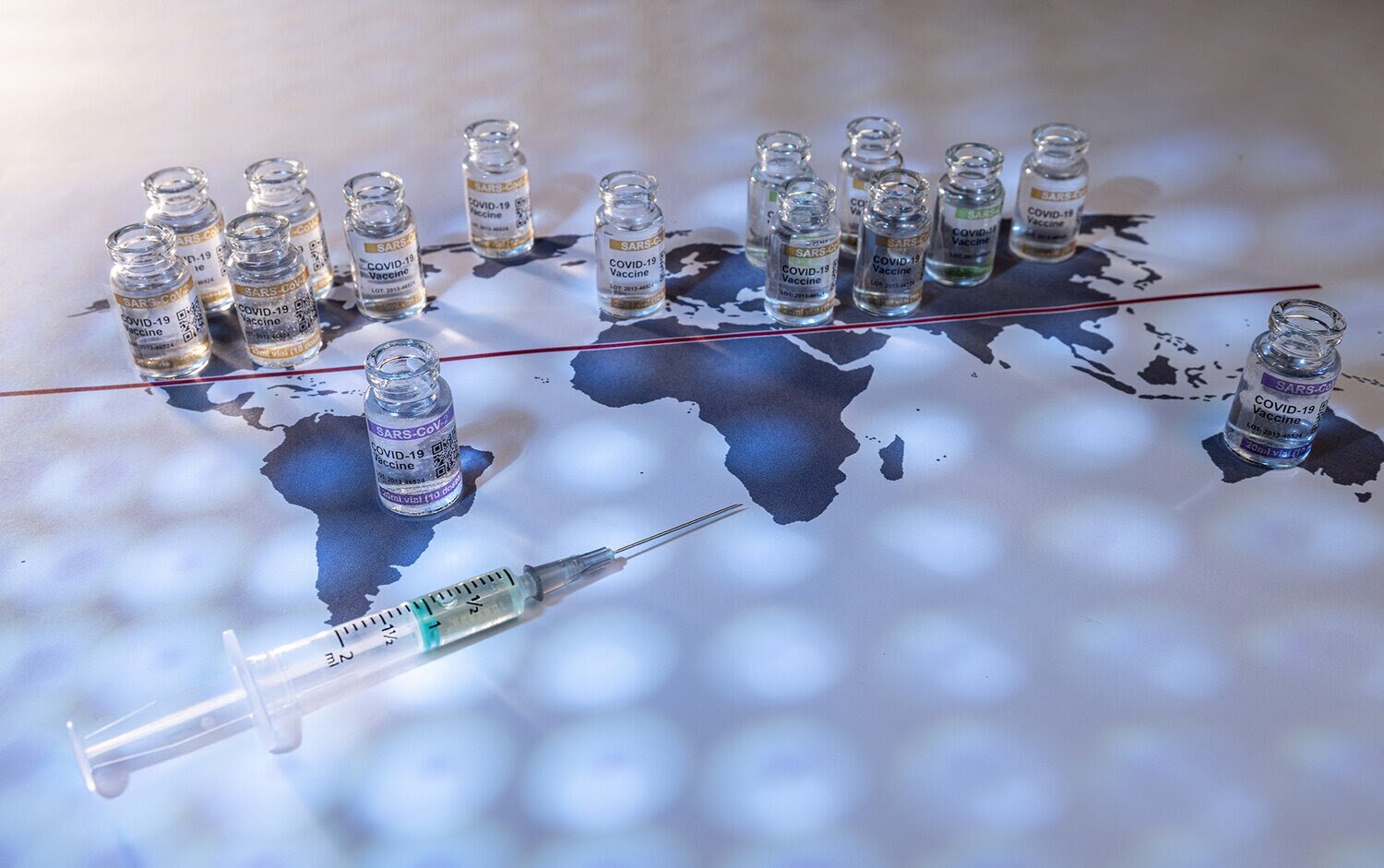50 nanometres. It is unfathomable that something this small could wreak havoc and bring the entire world to a halt. Yet we find ourselves in the chokehold of an organism that is 160 times smaller than a human red blood cell.The coronavirus has been holding the entire world hostage ever since its emergence in Wuhan, China early last year. Over 150 million infections and around 3 million deaths later, a glimmer of hope is at last in our hands. Several vaccines have been developed that have proven to be safe and effective and are being rolled out across the globe. In times like this, cooperation is a must. However, as is a recurring theme in history, nations and companies alike are instead motivated by self-interest. Developed nations are hoarding vaccines, leaving less developed countries with not nearly enough doses to inoculate their populations. 2021 holds promise to be the year we put the worst of the pandemic behind us, but this can only be accomplished through global cooperation and unity, not greed and selfishness. The world’s poorest nations should be inoculated as fast as possible, lest we all suffer the consequences.
It has been frightfully obvious since the beginnings of the vaccine roll-out, and even the early days of the pandemic, that developing nations would be left out of the mass inoculation projects. Vaccines are being administered in a vastly disproportionate manner, with richer nations administering doses about 25 times faster than poorer ones. Wealthier countries account for 38.6% of vaccine doses administered so far, but only for 10.9% of the world’s population. The United States, for example, began its vaccination campaign in late December of 2020, while most African nations did not start their campaigns until mid-2021, so it is not surprising However, it is important to note that the issues that have manifested themselves as the vaccine roll-out made its way across the world have been in the making since early in the pandemic, shortly after it became clear that a vaccine would likely be necessary to essentially save humanity. Wealthier countries rapidly struck bilateral deals with the companies developing the most promising vaccine candidates, securing enough doses to cover an average of 245% of their populations. . Higher-income countries that represent less than a fifth of the world’s population quickly reserved 54% of the vaccine doses projected to be produced, leaving poorer countries scantily enough for even their frontline workers and vulnerable populations.
The mindless hoarding of vaccines does not come without an enormous cost to nations who are partaking in it. The most urgent and blatantly obvious consequence of unfair vaccine distribution is the hundreds of thousands, if not millions of unnecessary deaths it could lead to in low-income nations. Estimates predict that the lopsided distribution the world is witnessing could cause the total death toll to , with a study by the Northeastern University in Boston finding that it could even double. Needless to say, it does not take a study to show that the overwhelming majority of those deaths would occur in poorer nations that have no access to vaccines.
Already, India, for example, with vaccine coverage for only 6% of its population, is being brought to its knees by a crushing wave of the pandemic that is claiming over 3,000 lives a day in the country, not to mention breaking worldwide case records every other day. These chilling statistics provide insight into another alarming consequence of vaccine nationalism, which is the spread of deadly and/or more transmissible variants of the virus that have the potential to undo any research progress on vaccines and treatments. In an article written for Foreign Policy, the chief of the WHO, Tedros Adhanom Ghebreyesus, argued that “unchecked spread [of the virus] can result in the emergence of more contagious variants, leading to a steep rise in cases”. This vicious cycle that Ghebreyesus is describing is essentially natural selection at work. The more a virus spreads in pandemic-stricken countries like India, the more it mutates, and thus the more chances evolution has to select for more transmissible variants. Sometimes, the variants can become, by pure chance, more deadly. Another worrying consequence of mutation is the development of vaccine resistance. Limited studies show, for example, that the AstraZeneca vaccine is almost entirely ineffective at preventing mild cases of COVID-19 caused by the South African variant (B.1.351) currently in circulation.
As Ghebreyesus elegantly puts it, “the pandemic will not be over anywhere until it is over everywhere”. It is thus foolish and naive for richer countries to prematurely tout gains over the pandemic when they have inadvertently (or not so much) created vast breeding grounds for Nature to do what she has been doing for the past billions of years: get better. And unfortunately, better from the coronavirus’s perspective is disastrous for us. Ghebreyesus, in his article, also mentions the interconnected world we live in, which leads to the third effect of hoarding vaccines. Prolonging the pandemic is bound to have a severe economic impact not only on the poorer nations with no access to vaccines, but also the richer nations themselves, who have come to rely on lower-income nations for which, needless to say, is a substantial amount. These statistics are far from surprising given that most of the world’s largest factories are located in lower-income countries, in addition to the fact that global supply chains heavily depend on these nations.
Arguably, it is the moral obligation of wealthier nations to aid in the inoculation of developing countries they have incessantly exploited for their riches. Nobody opts to be born in a country where there are four ventilators per millions of people, or one dilapidated hospital every thousand square kilometres. It is ironic how developed countries who have spent decades attempting to atone for their previous colonial sins by advocating for global human rights now do nothing but sit on their hands and watch thousands die, but it is not surprising. As mentioned earlier, India is witnessing a horrifying resurgence of the virus, with more than 3,000 deaths per day. The same number of daily deaths in the U.S. was extensively and dramatically covered by almost every major news outlet. Now that the U.S. has moved forward with its vaccination campaign, the harrowing statistics coming from India are seemingly greeted with deafening silence, inaction, and no more than a shrug. Simply put, vaccine nationalism is a blatant slap in the face to basic human rights.
The state of inequality that is manifesting itself in the scramble for vaccines is the result of the system built over the past centuries by the so-called “developed world” who has merely exploited other nations for their self-interest and greed. Through a shared, violent history of oppression and exploitation, colonialist nations have upheld the lopsided status quo that we find ourselves living in today. In other words, the very countries that are at the forefront of vaccine development are the way they are today (in terms of wealth and power) due to their incessant plundering of poorer nations throughout history. It would be deplorable to continue to mindlessly propagate what could only be called colonialist sentiments by denying ex-colonies access to vaccines that have been developed off of resources plundered from those very colonies. They now have a choice, however, of whether to continue perpetuating inequality or to repay small fractions of their debts to the nations they have plundered. From an ethical and moral standpoint, the answer is obvious. The Secretary-General of the United Nations, Antonio Guterres, said that “we face the greatest test of global solidarity in generations”, as COVID-19 continues its unrelenting rampage across the world. Based on the statistics presented throughout this article, it is easy to say that we are failing.
Vaccines are our only hope to bring the nightmare that is the COVID-19 pandemic to an end. Economies, livelihoods, and most importantly, human lives, hang in the balance, hence the paramount importance of quick and efficient inoculation. As described thoroughly in this article, however, it is not only how many vaccine doses we administer that matters, but also how and where we administer them. Inequitable inoculation, the likes of which we are seeing with the current vaccine roll-out, has severe epidemiological, economic, and political consequences that developed nations should go to great lengths to avoid.
As Ghebreyesus said in his article for Foreign Policy, “vaccine allocation must not become a zero-sum game”. Referring to the global effort as a vaccine “race” perpetuates the harmful mentality that this distribution is indeed a zero-sum game and that there are going to be losers and winners. There must not be. But if wealthy nations act as if they are practically living on another planet, there very well might be. This pandemic was, and still is, the world’s wake-up call. We are being made to face realities that we have been turning away from for decades, like the fact that even the most powerful nations are not prepared to handle pandemics, or the fact that vast inequalities and injustices still exist in the world, or the fact that greed and selfishness still seem to trump morals and reason. There is still time to learn from these mistakes, however, and alter the course of history in the coming months and years of the vaccine roll-out, but the clock is ticking. COVID-19 is far from the worst illness nature has to offer, and if the world fails this test as it has been for the past year, then we will continue to be taught the same lessons in a very ugly way.




